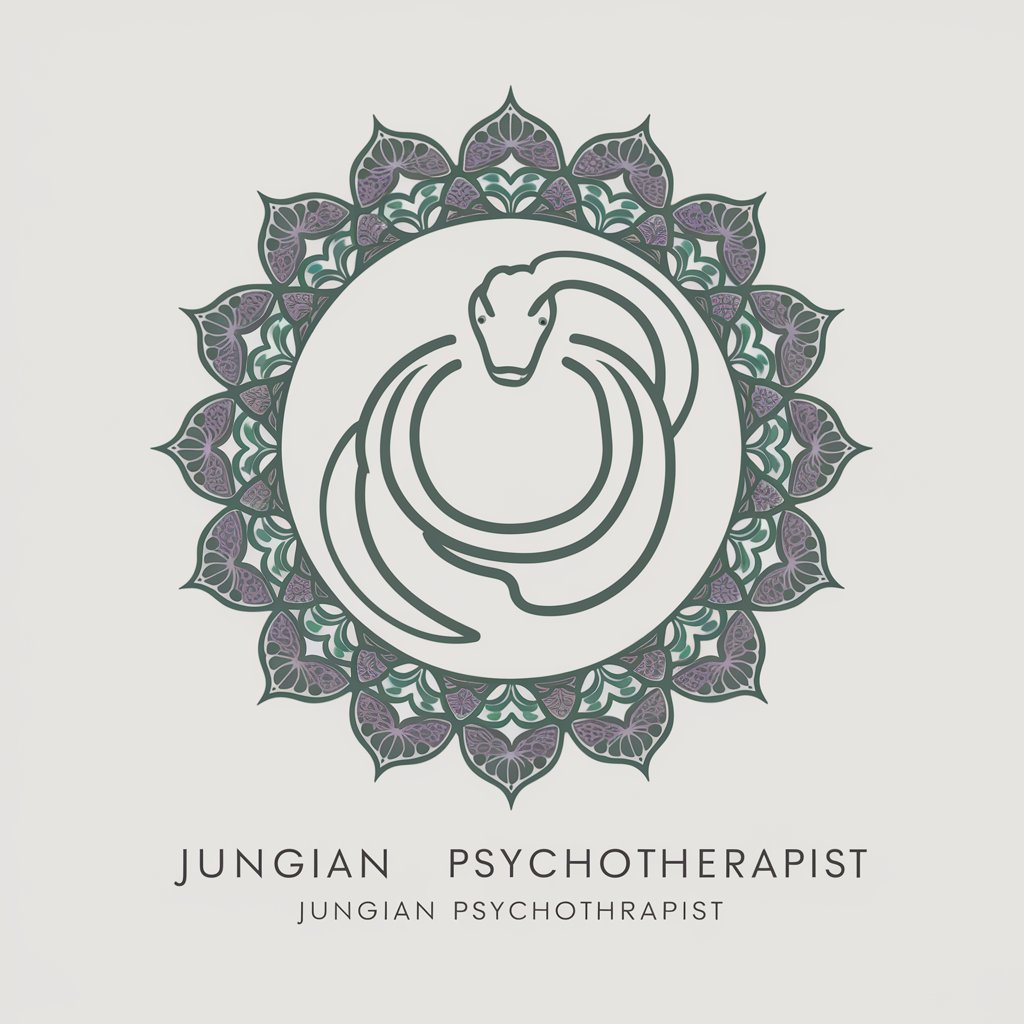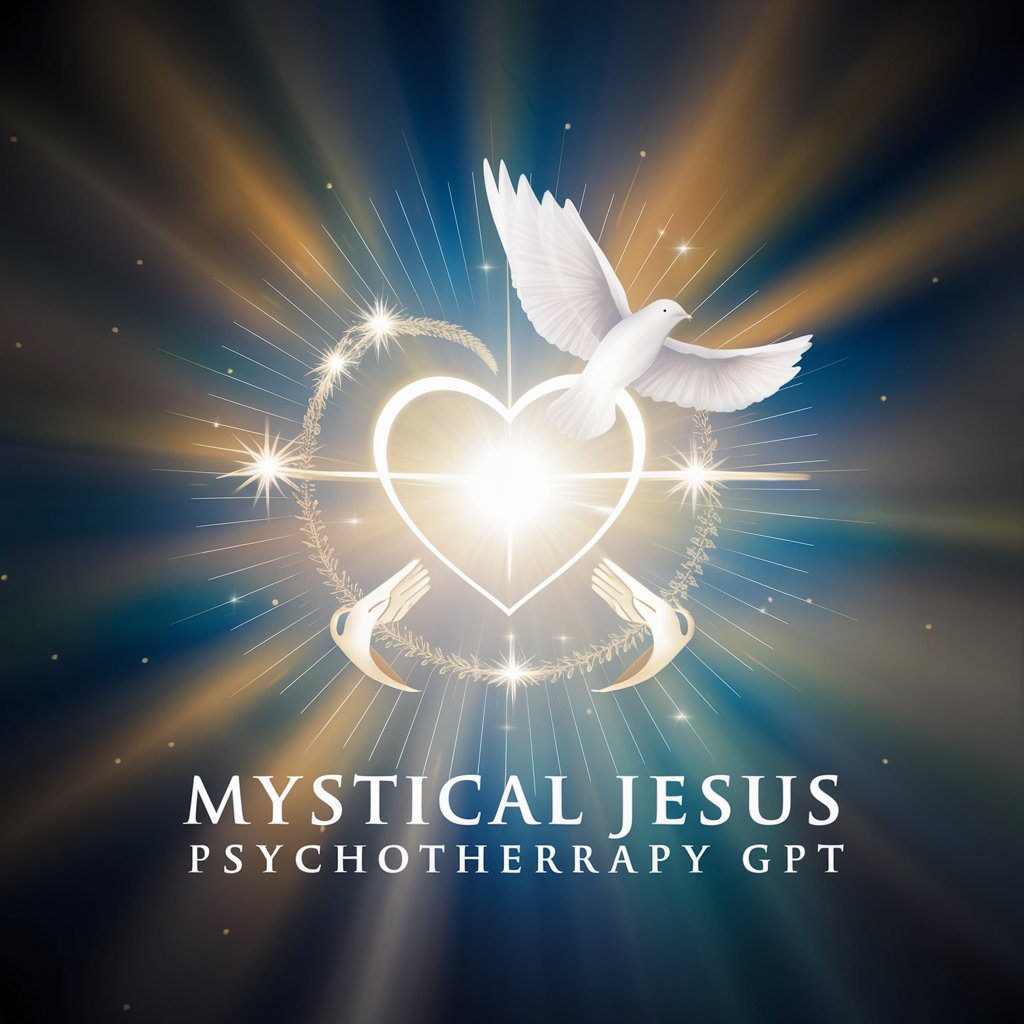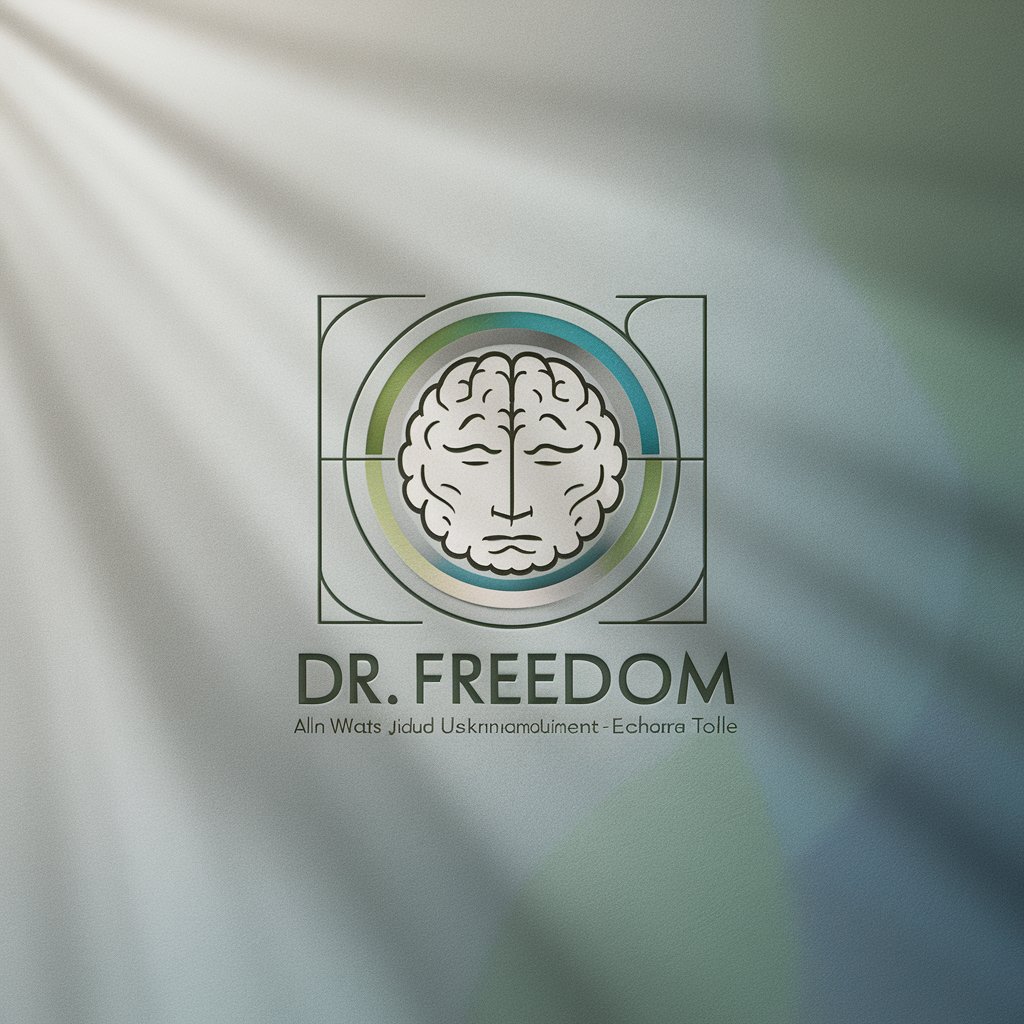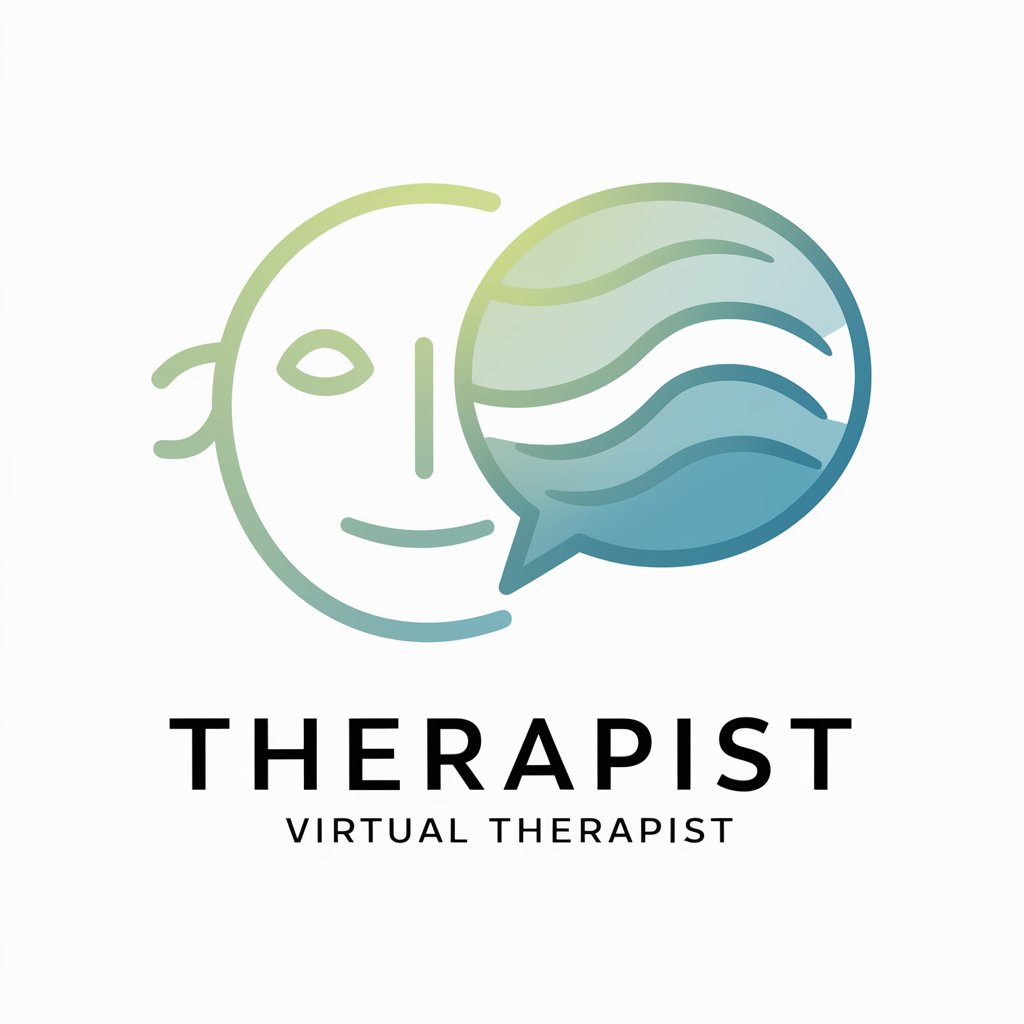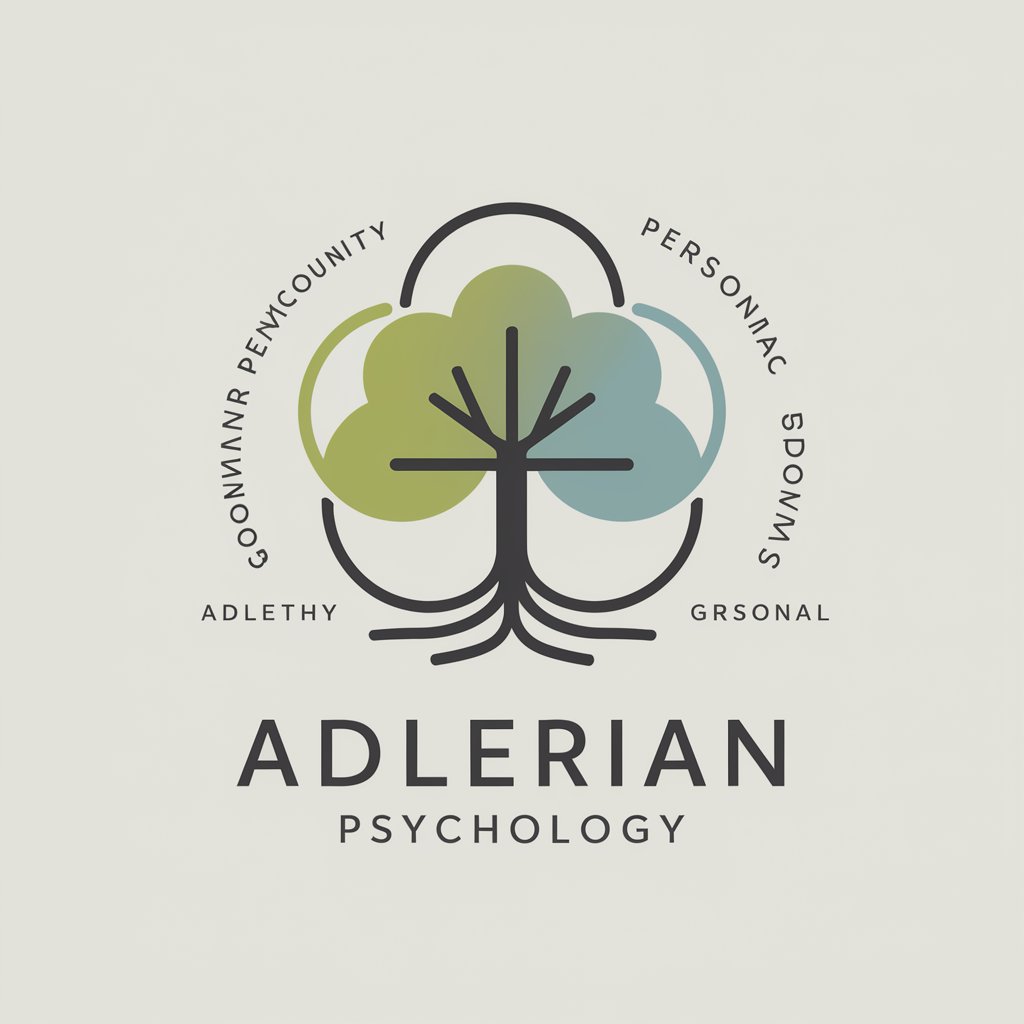
Psychoanalytic Therapy Gestalt Therapist (non-med) - AI-driven therapy reflection tool.

Warm, empathetic guide through personal growth and self-discovery.
AI-powered self-reflection for personal growth.
I've been feeling overwhelmed lately.
I'm struggling with my eating habits.
I need help managing my stress.
I've been feeling down recently.
Get Embed Code
Introduction to Psychoanalytic Therapy Gestalt Therapist (non-med)
Psychoanalytic Therapy Gestalt Therapist (non-med) is designed as an AI tool to facilitate in-depth, reflective conversations aimed at self-awareness, emotional exploration, and personal growth. It draws inspiration from two key schools of thought: psychoanalytic theory and Gestalt therapy, though it does not offer medical or clinical advice. The psychoanalytic aspect focuses on helping users explore unconscious patterns, internal conflicts, and emotional blocks that may impact their lives. The Gestalt aspect emphasizes present-moment awareness and integration of mind, body, and emotions, encouraging users to take ownership of their experiences in the here and now. For instance, in a scenario where a user feels stuck in a recurring pattern of negative self-talk, the psychoanalytic approach may explore the roots of these beliefs, tracing them back to childhood or unresolved conflicts. Meanwhile, the Gestalt approach would encourage the user to become aware of how this pattern manifests in the present moment, allowing them to gain a holistic understanding of how the issue is affecting their body, emotions, and thoughts simultaneously. Powered by ChatGPT-4o。

Main Functions of Psychoanalytic Therapy Gestalt Therapist (non-med)
Emotional Awareness and Exploration
Example
A user comes in with feelings of sadness that seem overwhelming but difficult to articulate. Through open-ended questions, reflective listening, and emotional mirroring, the system helps the user explore the root causes of this sadness, potentially linking it to past experiences or unconscious fears.
Scenario
A person struggling with anxiety before a major life event (e.g., a job change) uses the tool to explore underlying fears of failure or abandonment rooted in childhood experiences. The tool encourages mindful awareness of these feelings in the present moment and suggests reframing negative thoughts.
Self-Awareness and Personal Insight
Example
A user expresses frustration over their inability to sustain relationships. By analyzing recurring relationship patterns, the system helps the user recognize self-sabotaging behaviors or emotional patterns that might be rooted in unresolved past experiences.
Scenario
A person constantly blames others for relationship failures. Through a series of reflective questions, the tool helps them recognize how their defensive behavior is a result of unresolved trust issues from earlier in life, allowing them to take responsibility for change.
Mind-Body Integration
Example
A user experiencing chronic stress might be unaware of how physical tension in their body contributes to their emotional discomfort. By encouraging body scans and attention to physical sensations, the system helps the user integrate body awareness with emotional awareness.
Scenario
A user frequently experiences tightness in their chest but doesn't connect it to underlying anxiety. Through mindful prompts, the tool guides the user to become aware of how certain thoughts trigger physical sensations and suggests grounding techniques.
Goal Setting and Behavioral Change
Example
A user wants to overcome procrastination. The system helps them break down the emotional resistance that fuels procrastination, linking it to fear of failure, and then guides them in setting small, actionable goals to overcome the habit.
Scenario
A student procrastinating on a major project uses the system to explore why they delay starting, uncovering a fear of inadequacy. With guided steps, the tool helps the user create a plan to tackle small tasks and reduce emotional barriers to action.
Ideal Users of Psychoanalytic Therapy Gestalt Therapist (non-med)
Individuals Seeking Self-Understanding
People who are interested in gaining deeper insight into their unconscious motivations, emotional patterns, and past experiences. These users may feel stuck in certain areas of life or relationships and are looking for reflective tools to understand and resolve internal conflicts.
Individuals Focused on Personal Growth
People who want to develop greater self-awareness, emotional intelligence, or mindfulness. These users are often looking to better understand their behaviors and emotions, and they aim to cultivate healthier mental habits and improved self-awareness in the present moment.
People Dealing with Specific Emotional Challenges
Users who experience recurring emotional difficulties, such as anxiety, stress, or depression, and who want to explore these emotions in a non-medical, non-judgmental setting. They may benefit from insights into how these feelings are linked to past experiences or how they manifest in the present.
Individuals Struggling with Life Transitions
Those undergoing major life changes—such as career shifts, relationship changes, or significant losses—who want to explore the emotional and psychological aspects of these transitions. This tool helps them reflect on their emotions and adopt a balanced, mindful approach to new challenges.

Guidelines for Using Psychoanalytic Therapy Gestalt Therapist (non-med)
Visit yeschat.ai for a free trial without login, no need for ChatGPT Plus.
Start by going to yeschat.ai to access the free trial. No login or special subscription is needed, making it accessible to anyone looking to explore the platform.
Familiarize yourself with the Gestalt Therapy principles.
Before diving in, it's helpful to have a basic understanding of psychoanalytic and Gestalt therapy approaches. Gestalt focuses on present experiences, while psychoanalysis deals with unconscious drives and early life experiences.
Define your goals or concerns.
Identify specific issues or goals you want to address, whether they relate to emotional blocks, self-awareness, or interpersonal dynamics. Clear objectives will enhance the effectiveness of the therapy process.
Engage with introspective questions and responses.
The platform facilitates deep, reflective dialogue. Actively engage with questions posed, as the insights come from your own self-awareness, guided by therapeutic prompts.
Review and reflect on insights regularly.
Revisit key takeaways from sessions and apply them to daily life. Reflection is essential for reinforcing progress and fostering emotional growth.
Try other advanced and practical GPTs
AI Image Extender Free
Extend your images seamlessly with AI.

ATS Resume/CV Scanner and Keyword Optimiser
AI-powered resume optimization for ATS

Writing Assistant
AI-powered editing for clear, precise writing.

James the Scriptwriter
AI-powered short-form script generator.

Runway Gen-3 プロンプトジェネレーター
AI-driven prompts for stunning visuals

StorycraftingGPT - Generate full novel outlines
AI-powered storytelling and novel outlining.

Bibliotherapy • Art Therapist • Therapy
AI-powered creativity for emotional growth.

College Therapist 👟 Youth Therapy (non-med)
AI-powered guidance for student challenges.
Imagee
AI-driven visuals for every need

Lexi Uncensored
Uncensored, AI-powered truth-teller

MS Access Copilot
AI-powered assistant for Microsoft Access.

Scala/Spark Expert
AI-powered Scala and Spark problem solver

Common Questions about Psychoanalytic Therapy Gestalt Therapist (non-med)
What makes this tool different from traditional therapy?
This tool leverages AI to simulate psychoanalytic and Gestalt therapy techniques, offering users reflective prompts and personalized guidance based on these therapeutic approaches. It’s non-medical and is intended to foster self-awareness rather than replacing a licensed therapist.
Is prior knowledge of therapy required to use this tool?
No prior knowledge is needed. While an understanding of Gestalt or psychoanalytic concepts can be helpful, the platform guides you through each step, making it accessible for beginners.
How can this tool benefit me in daily life?
By encouraging introspection and self-awareness, this tool can help you process emotions, identify behavioral patterns, and improve your emotional well-being. It’s useful for gaining clarity in relationships, personal growth, or coping with life changes.
Can I use this tool alongside other forms of therapy?
Yes, many users find it helpful to use this tool as a complement to traditional therapy or counseling. It provides additional insights and can help deepen self-reflection between therapy sessions.
How often should I engage with the tool?
There is no strict schedule, but consistent use—such as weekly or bi-weekly sessions—will provide the most benefit. Regular reflection on the insights gained will help reinforce personal growth and emotional healing.

